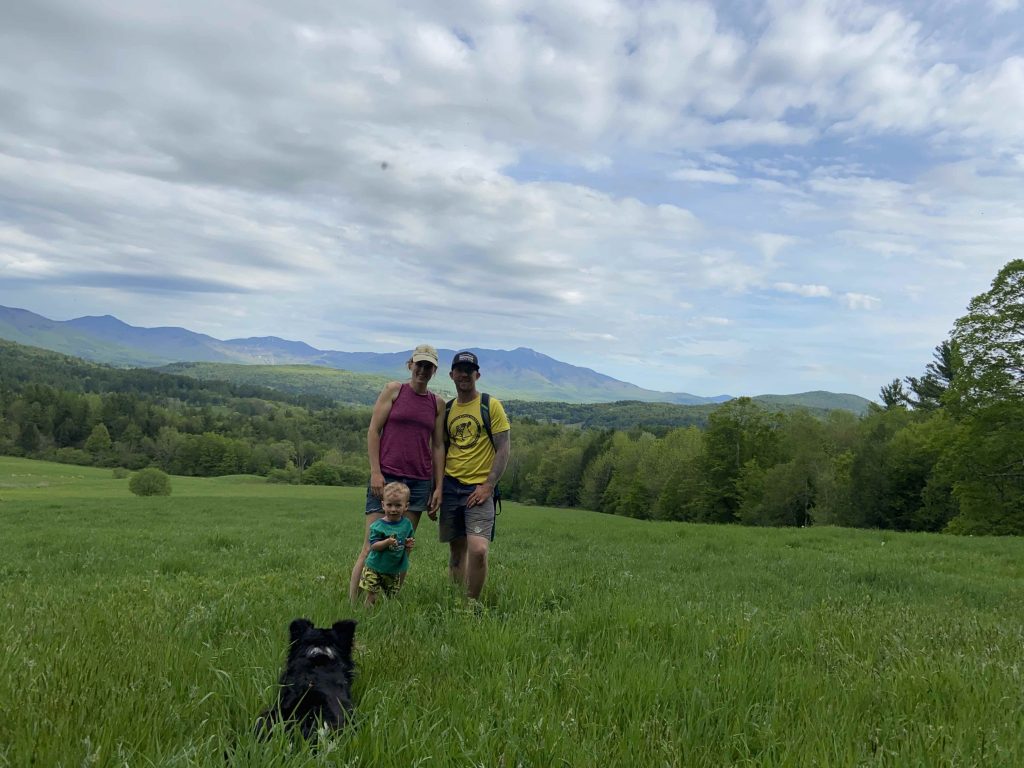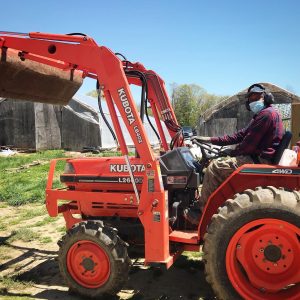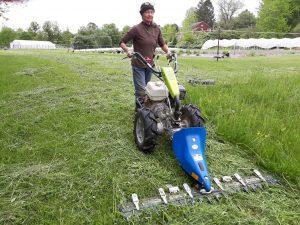American Farmland Trust’s New England Farmer Microgrant Program Awards $180,000 to 41 farmers
At this challenging time for local farms, grants aim to boost farmland access, improve productivity and secure farmland for New England’s future
6/4/2020 NORTHAMPTON, MA — American Farmland Trust’s New England Farmer Microgrants Program has awarded its first-ever suite of small grants to 41 farmers across New England, totaling $180,000. The new program is designed to address three areas identified as presenting some of the greatest barriers to farmer success in New England: the financial challenges associated with land access, expanding production on new land and farm succession planning. NEFMP allows for a wide variety of projects within these categories, with the aim of getting funds to farmers who need it most and who need it now more than ever.
The funding could not have come at a more critical time for farmers in New England as they struggle with a changing marketplace, labor issues and supply chain challenges in light of the COVID-19 crisis.
NEFMP was founded with the support of two long time AFT members: 27-year member Susanna Colloredo-Mansfeld of Hamilton, Massachusetts, and 22-year member William W. Farkas of Yardley, Pennsylvania. Both believing investment catalyzes change and looking to lift up the New England food system immediately and long-term, they generously seeded this effort.
This year, New England farmers could apply for between $500 and $5000 to fund infrastructure or equipment, cover closing costs on the purchase of a farm property, get professional help with succession planning or pay for other services related to helping them expand their operations. A total of 41 farmers received funds this year, and with fundraising ongoing and commitments from donors already in hand, AFT will launch year two of the program in January 2021.
Mr. Farkas’s contribution, designated for Berkshire County, Massachusetts, allowed for a special focus on funding farmers in that region. Mr. Farkas, who passed away on March 23, 2020, was a dedicated partner in saving the land that sustains us for more than two decades. His legacy will have a lasting, positive effect in the Berkshires.
“New England farmers, like farmers across the country, struggle with affordable access to land, capital costs associated with starting or expanding their farm business, and covering the costs of services to get onto land or pass on the land to a new generation,” said Jamie Pottern, AFT’s New England program manager. “This grant program is providing direct support to farmers to address the very gaps we have long identified as barriers to success. We’re excited to demonstrate how these relatively small amounts of funding can make all the difference for farmers in getting them over that next hurdle towards greater land security and productivity on their farm.”
The range of farmer applicants and awardees was diverse, from larger, multi-generational farms planning for farm succession, to start-up farms run by those just graduating from incubator farm programs and needing critical equipment to launch their businesses. The program has funded flower farmers, vegetable community-supported agriculture, or CSA, programs, pasture-based meat and dairy operations, orchards and fruit farms, and small-scale urban micro-farms.

Hannah and John Doyle of Boneyard Farm in Bakersfield, Vermont, received a grant to purchase poultry processing equipment to expand their chicken production capacity. Currently located on a small, 10-acre, diversified farm raising pastured pork and chicken, vegetables, herbs, and flowers, they have worked with the Intervale Center’s Beginning Farmer Program and other service providers for over six months to develop a business plan, and are coordinating with Vermont Land Trust to purchase a much larger farm nearby to expand their business and at the same time protect the land under an agricultural easement. “The purchase of the new equipment has improved our workflow and overall business viability,” said Hannah Doyle “With this public health crisis, we are already seeing such a huge demand for food purchased straight from the producer, and we have had many new-to-us customers reaching out about meat, eggs and produce.”

Fresh Start Farms, a farmer training and development program of the Organization for Refugee and Immigrant Success, or ORIS, in New Hampshire received a NEMFP award to help leverage funds generated from additional outside fundraising sources to purchase a much needed tractor and implements, allowing them to expand cultivation on their land. Fresh Start Farms has assisted southern New Hampshire’s socially disadvantaged, low-income refugee and immigrant farmers since 2007. In early 2018, ORIS purchased the 56-acre Story Hill Farm in Dunbarton, which it had leased for more than five years. Farmers grow food to promote their household food security as well as sell their products through farmers markets, a CSA, SNAP accessible farm stands, and a couple wholesale accounts. “How abundantly grateful we are for this opportunity and our partnership with American Farmland Trust,” said Charlene Higgins, ORIS’s New American Sustainable Agriculture Project program director.
“Shared equipment such as this is truly game-changing for the farmers’ enterprises and our program as a whole, and especially during these times when food systems are rapidly shifting. Having the tools to help drive impact (quite literally, in this case!) and move our mission forward makes such a difference.”

Many Forks Farm in Clarksburg, Massachusetts, run by Sharon Wyrrick is one of the 11 farms in the Berkshires that received funding through the generosity of Mr. Farkus. Sharon was able to purchase a new tractor implement, which will support Many Forks’ efforts moving towards no-till production and increase on-farm produced fertility by enabling the farm to grow and cut their own straw for mulching and composting material. Many Forks is a small, diversified farm in its ninth season that practices limited tillage and is striving to go “no-till” to build soil health, increase pollinator diversity, and sequester more carbon. “This is a big boost to hear this news today-for hopefulness for future growth and developments in the strengthening of our operation and the long-term vision we have for it!” said Sharon Wyrrick. “Thank you and American Farmland Trust for all the work you are doing to make our farms more secure.”
New England is blessed to have a wealth of organizations and agencies that support farmers with planning for the success and future of their farms. These service providers—local land trusts, state and federal agencies, and non-profit organizations like Land for Good—were instrumental in getting the word out about this program to eligible farms across the region and writing letters of support. AFT is grateful for the tremendous collaborative effort of our partners in supporting our region’s farmers.
AFT’s recent report, “Farms Under Threat: A New England Perspective,” found that between 2001 and 2016, 19 acres per day, or 7,000 acres per year, of New England’s agricultural land was lost or threatened. New England has some of the highest farmland real estate values in the entire country, making it exceedingly difficult for farmers to afford land—meanwhile, over a third of New England farmers are over age 65. Supporting farmers of all ages and backgrounds, across urban, suburban and rural communities is vital for protecting the land base and enhancing the health of regional food systems in New England.
##
American Farmland Trust is the only national organization that takes a holistic approach to agriculture, focusing on the land itself, the agricultural practices used on that land, and the farmers and ranchers who do the work. AFT launched the conservation agriculture movement and continues to raise public awareness through our No Farms, No Food message. Since our founding in 1980, AFT has helped permanently protect over 6.5 million acres of agricultural lands, advanced environmentally-sound farming practices on millions of additional acres and supported thousands of farm families.

